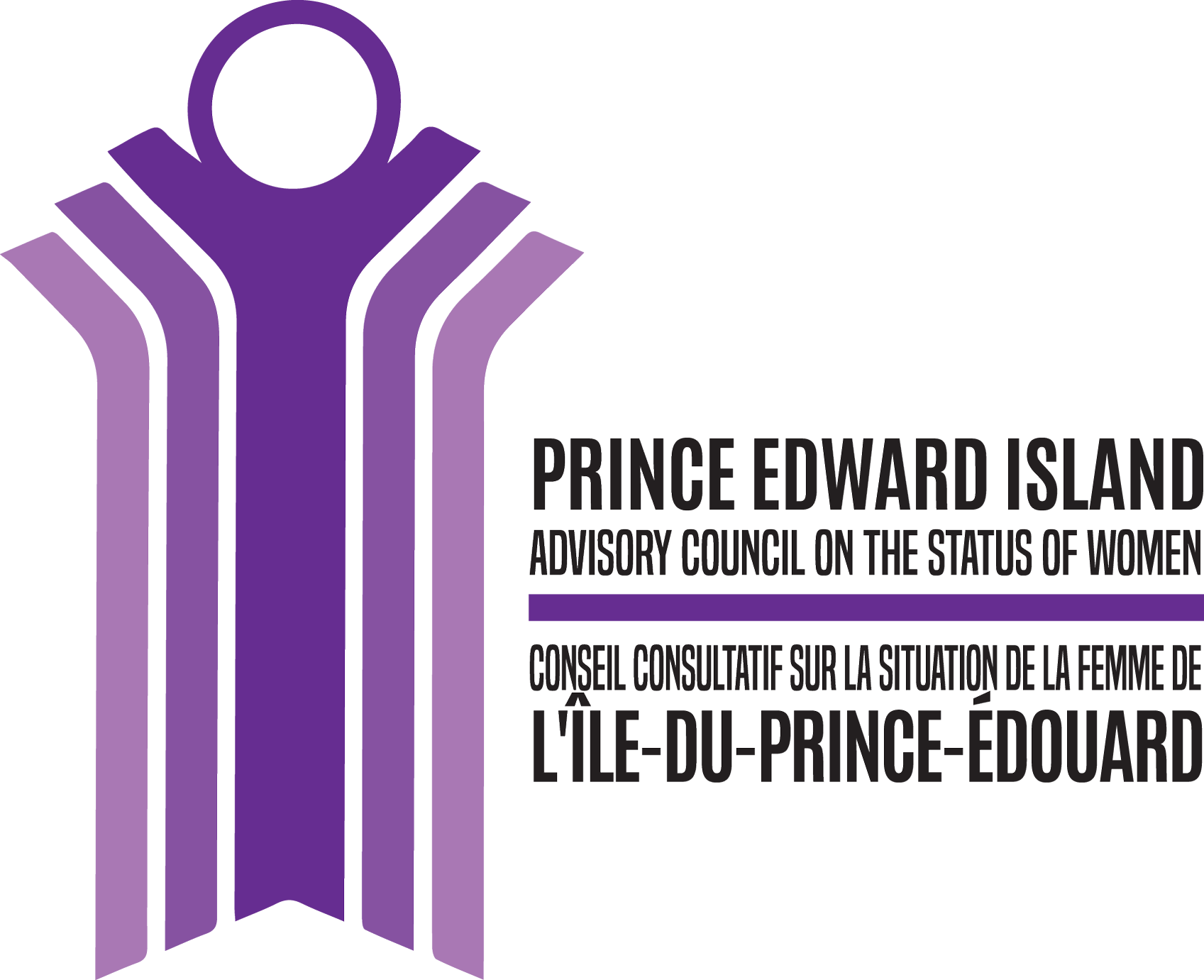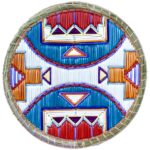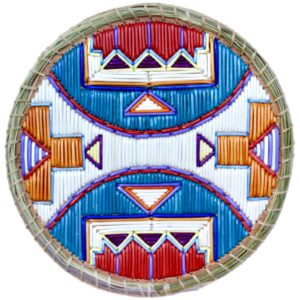The PEI Advisory Council on the Status of Women acknowledges all women-identifying people in our understanding of “women,” including cis women, trans women, and gender minorities.
PEI ADVISORY COUNCIL ON THE STATUS OF WOMEN
The PEI Advisory Council on the Status of Women (PEIACSW) is an arm’s-length government-appointed Council. Nine Council members are selected from among Island women who have demonstrated a commitment to women’s equality and who represent regional, cultural, and ethnic diversity.
The Council believes that women’s equality is the foundation for equality for all people. Women’s inequality continues to influence discriminatory attitudes and actions that affect our society and culture, our politics and laws, and our economies. Council believes that women’s independent social and economic security is key to equality and to freedom from physical, emotional, and sexual violence.
The Advisory Council began in 1975 as a Minute-in-Council. In 1988, it received full legislative standing with the PEI Advisory Council on the Status of Women Act. This act continues to govern the Council’s structure and mandate.
With a commitment to feminist principles and process, the PEIACSW:
- Serves as an advisor to the Minister Responsible for the Status of Women regarding issues facing Island women and girls and their families;
- Serves as a liaison between the community and the provincial government on matters related to equality;
- Works for equality and supports women’s full and active participation in social, legal, cultural, economic, and political spheres of life;
- Promotes social justice for vulnerable populations, including senior women, Aboriginal women, low-income women, women of colour, Francophone women, women with disabilities, women who identify as LGBTQ, and others;
- Conducts research and offers recommendations to government, collaborators and partners to promote equality;
- Provides leadership that educates and stimulates public awareness about the status of women and their families;
- Works in collaboration with other provincial/territorial Advisory Councils.
The PEI government appoints Council members from among people who have applied through Engage PEI. Visit www.princeedwardisland.ca/engagepei/or call 902-368-4502.
LE CONSEIL CONSULTATIF SUR LA SITUATION DE LA FEMME DE L’Î.-P.-É.
Le Conseil consultatif sur la situation de la femme de l’Î.-P.-É. (CCSFÎPÉ) est un conseil indépendant dont les membres sont nommés par le gouvernement. Le Conseil est composé de neuf membres sélectionnés parmi des femmes insulaires qui font preuve d’intérêt pour l’égalité de la femme et qui représentent la diversité régionale, culturelle et ethnique.
Le Conseil estime que l’égalité de la femme est le fondement de l’égalité pour tous. L’inégalité de la femme continue de favoriser des attitudes et des gestes discriminatoires qui influent sur la société, la culture, la politique, les lois et l’économie. Selon le Conseil, l’égalité et la disparition de la violence physique, psychologique et sexuelle passent par l’indépendance et la sécurité socioéconomique de la femme.
Le Conseil consultatif a été créé en 1975 par décret. Il existe maintenant à part entière en vertu de l’Advisory Council on the Status of Women Act (loi sur le Conseil consultatif sur la situation de la femme) de 1988. La loi régit la structure et le mandat du Conseil.
Tout en restant fidèle aux principes et au processus féministes, le CCSFÎPÉ :
- Agit à titre de conseiller de la ministre responsable de la Situation de la femme en matière de problèmes auxquels font face les femmes et les filles de la province ainsi que les familles;
- Assure la communication entre la communauté et le gouvernement provincial pour ce qui est des questions liées à l’égalité;
- Travaille à l’atteinte de l’égalité et appuie la participation complète et active des femmes dans les sphères sociale, juridique, culturelle, économique et politique;
- Promeut la justice sociale pour des groupes vulnérables, comme les aînées, les femmes autochtones, les femmes ayant un faible revenu, les femmes de couleur, les femmes francophones, les femmes ayant un handicap, les femmes allosexuelles et autres;
- Fait de la recherche et offre des recommandations au gouvernement, à ses collaborateurs et à ses partenaires afin de promouvoir l’égalité;
- Exerce un leadership qui sensibilise le public à la situation de la femme et des familles;
- Collabore avec les conseils consultatifs d’autres provinces et territoires.
Le gouvernement de l’Île-du-Prince-Édouard choisit les membres du Conseil parmi les personnes qui ont posé leur candidature par l’entremise de Contribuons à l’Î.-P.-É. Visitez le site Web ou appelez au 902-368-4502.
ABOUT THE ARTWORK ON THIS PAGE
Melissa Peter Paul is a Mi’kmaw woman from the Abegweit First Nation, located on Epekwitk (PEI). Growing up, Melissa was immersed in cultural teachings and began her artistic expression at a young age, making regalia and beadwork, and is skilled in both traditional and contemporary styles. Her exposure to other Mi’kmaq art forms led her to the quillwork, a traditional skill in which the ancestors of her maternal grandfather excelled.
She began an apprenticeship into Mi’kmaq Quill Art in 2015. Her training was grounded in the traditional insertion technique and utilized the study of cultural teachings and formal resources available through museums and historic publications. Quillwork is created by inserting porcupine quills, either dyed or kept natural, into birch bark. The pieces are then edged with quills, sweetgrass, or spruce root. Over the course of her apprenticeship Melissa learned protocols and techniques related to harvesting raw materials, as well as the complex geometry or traditional design.
Melissa launched her professional career as a quill artist with her first solo exhibit in Charlottetown in 2019. She is proud to be passing the art on to her two sons and the broader community.


